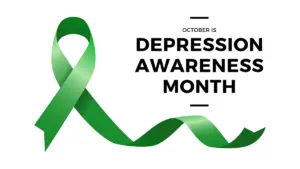Brain fog can make you feel like your mind is stuck in a cloud. It isn’t a disease, but it is a sign that something in your body or mind needs attention.
This blog explains the causes and symptoms of this condition, and how substances like drugs and alcohol can lead to short-term and long-term cognitive problems. You’ll also see helpful ways to treat brain fog using supplements, therapies, and everyday habits that support clearer thinking.

Introduction to Brain Fog
“Brain fog” is a term that describes a collection of symptoms that affect your brain’s ability to work properly. This includes clear thinking, staying focused, remembering tasks, and making decisions.
Brain fog also impairs how well you communicate, follow instructions, or complete everyday tasks. When you’re dealing with brain fog, even simple things, like holding a conversation or finding the right word(s), can feel frustrating and exhausting.
Causes of Brain Fog
Many things can cause brain fog, from medications to lifestyle factors. Here are some of the common causes:
Medications
Certain medications can affect your cognitive function and lead to brain fog. Some examples include:
- Anti-cholinergic drugs: These can impact your brain and memory.
- Older antihistamines (like diphenhydramine): These are commonly used for allergies but can make you feel groggy and unfocused.
- Some older antidepressants (like amitriptyline): These can cause drowsiness and mental fog.
- Medications for urinary symptoms (like oxybutynin): Used for bladder control, these can sometimes impact your memory and clarity.
Illnesses and Conditions
Certain health conditions or illnesses can trigger brain fog. Some examples include:
- COVID-19: People recovering from COVID-19 sometimes report lasting brain fog.
- Menopause: Hormonal changes during menopause can affect your memory and concentration.
- Migraines: Migraines can cause mental confusion during or after an episode.
- Lyme disease: This infection can sometimes lead to cognitive issues.
- “Chemo brain”: Chemotherapy treatments can affect thinking and memory.
- Chronic Fatigue Syndrome: Feeling tired all the time can lead to problems with concentration and memory.
- Fibromyalgia: Often called “fibro fog,” this condition causes cognitive difficulties along with physical pain.
- Lupus: This autoimmune disease can affect the brain and lead to foggy thinking.
- Hormonal changes during pregnancy: Pregnancy hormones can cause temporary brain fog.
Environmental Factors
Things around you can also play a role in causing brain fog. Some of these include:
- Extreme heat: Being too hot can make you feel sluggish and unfocused.
- Air pollution: Poor air quality can affect how you think.
- Exposure to cold: Cold temperatures can sometimes lead to mental fogginess.
Lifestyle Factors
Your daily habits can also contribute to brain fog. Some of the most common lifestyle factors include:
- Poor sleep or insomnia: Not getting enough rest can leave your brain feeling foggy.
- Dehydration: If you’re not drinking enough water, your brain may not function as well.
- High stress levels: Too much stress can make it hard to focus and think clearly.
- Depression and anxiety: Mental health issues can cause cognitive difficulties, like brain fog.
- Drug or alcohol use: Both recreational drugs and alcohol can impair your brain’s function.
- Excessive screen time: Spending too much time on screens can lead to mental fatigue.
- Jet lag: Traveling to different time zones can confuse your body’s internal clock, leading to foggy thinking.
- Aging: As you get older, you might notice some natural cognitive slowing, which can feel like brain fog.
Common Symptoms of Cognitive Impairment
Brain fog can also come with a variety of symptoms. Some of the most common ones include:
- Trouble concentrating: You may feel easily distracted or like you can’t focus on one thing for long.
- Memory problems: Forgetting small details, names, or appointments may become more frequent.
- Confusion: It may feel like your thoughts are jumbled or disorganized, making it harder to make decisions or follow through on tasks.
- Mental fatigue: Even after getting enough sleep, you may feel mentally drained, like your brain is running on empty.
- Difficulty finding words: You might struggle to come up with the right words during conversations, making you feel disconnected.
By understanding what might be causing your brain fog, you can take steps to reduce or manage it, whether that’s adjusting medications, improving your sleep, or finding ways to reduce stress.
How Drugs and Alcohol Contribute to Brain Fog
Using drugs and alcohol can make your brain feel foggy and slow. They can affect your memory, focus, and decision-making abilities.
Alcohol and Brain Fog
Drinking too much alcohol can harm your brain. It affects areas responsible for thinking and memory. Studies have shown that alcohol use is linked to poorer cognitive function, including deficits in impulse control related to decreased cortical thickness and altered white matter integrity. This means that alcohol can make it harder for you to control your impulses and think clearly.1
Long-term alcohol use can also lead to memory problems. For example, alcohol primarily interferes with the ability to form new long-term memories, leaving previously established long-term memories. So, you might remember things from the past but struggle to remember recent events.2
Drugs and Brain Fog
Using drugs like cannabis, MDMA (ecstasy), and opioids can also lead to brain fog. These substances can impair your cognitive functions, such as memory, attention, and decision-making. Research has shown that chronic use of these drugs can lead to long-term cognitive impairments.
For instance, MDMA and cannabis have probable effects on cognition, and their long-term use can lead to neurotoxicity, which affects your brain’s ability to function properly.3
Combined Use and Increased Risk
Using both alcohol and drugs together can increase the risk of brain fog. This combination can lead to more severe cognitive impairments than using either substance alone. Studies have found that individuals who use both alcohol and cannabis experience greater cognitive deficits, including problems with memory and attention in the long term.4
When Brain Fog Requires Medical Attention
Sometimes, brain fog is just a temporary thing. Maybe you didn’t sleep well, or you’ve been feeling stressed. But other times, it can be a sign that something more serious is going on, and that’s when you need to pay attention.
If your brain fog sticks around for weeks or gets worse instead of better, this is the time when you should worry. Especially if it:
- Makes it hard to do your job
- Affects your relationships with family or friends
- Causes you to forget things often
- Makes it hard to stay focused or follow simple steps
- Comes with other symptoms like headaches, mood changes, or pain
- Causes you to seek substance use to cope
Brain fog might not seem like a big deal at first. But if it’s caused by a health condition, a hormone imbalance, or a side effect from medication, it needs attention. Leaving it untreated could lead to bigger problems with your mental and physical health.
Treatment Options for Brain Fog Recovery
There are many ways you can support your brain and start feeling clear and focused again. Let’s go over some of your options:
Supplements That Can Support Cognitive Health
Some supplements can give your brain the boost it needs. These may include:
- Omega-3 fatty acids are found in fish oil, which support memory and focus.
- Vitamin B12 helps with energy and brain function.
- Vitamin D supports mood and mental clarity.
- Ginkgo biloba is a natural herb that may help with blood flow to the brain.
- Magnesium helps reduce stress and support better sleep.
Before taking any supplements, it’s best to talk to your doctor to make sure they’re safe for you.
Therapies and Practices to Rebuild Cognitive Function
You can also try therapies that are made to help improve how your brain works. These include:
- Cognitive behavioral therapy (CBT) helps you manage stress and focus better.
- Occupational therapy helps with daily tasks if brain fog affects your routine.
- Neurofeedback is a therapy that trains your brain to work more efficiently.
These treatments can help retrain your brain and make thinking clearer.
Lifestyle Changes to Prevent and Manage Brain Fog
Simple changes in your daily habits can make a big difference, such as:
- Getting good sleep every night
- Drinking enough water to stay hydrated
- Taking breaks from screens and resting your eyes
- Reducing stress through deep breathing, music, or quiet time
- Limiting alcohol or drug use
These small habits can go a long way in preventing brain fog from returning.
Alternative and Holistic Approaches
Some people find relief through natural or holistic options. These might include:
- Acupuncture is used to reduce stress and improve energy flow
- Aromatherapy uses calming scents like lavender can help with focus
- Herbal teas, like ginseng or green tea, for mental alertness
Mindfulness and Meditation for Cognitive Clarity
Practicing mindfulness helps you slow down and pay attention to the moment. Meditation teaches your brain to stay calm and focused. Even just 10 minutes a day can help reduce brain fog and bring clarity.
Try:
- Guided meditations
- Breathing exercises
- Journaling your thoughts
Diet and Nutrition in Cognitive Health
What you eat matters. Your brain needs the right fuel. Try to eat:
- Leafy greens (like spinach and kale)
- Fatty fish (like salmon)
- Berries and nuts
- Whole grains
- Plenty of water
Avoid too much sugar, processed food, or caffeine, as these can make brain fog worse.
Exercise and Its Impact on Brain Function
Moving your body helps your mind. Regular exercise:
- Increases blood flow to your brain
- Boosts your mood
- Improves memory and focus
You don’t need to run a marathon; even a daily walk or stretching routine can help reduce brain fog.
At OceanRock Health, we understand how frustrating brain fog can be. That’s why we offer support and care to help you feel sharp and focused again. From personalized treatment plans to expert guidance, we’re here to walk with you on your journey to better brain health.
If you’re ready to get clarity back, we can help you take the first step in your brain fog recovery.

Sources:
Bedillion, M. F., Blaine, S. K., Claus, E. D., & Ansell, E. B. (2021). The Effects of Alcohol and Cannabis Co-use on Neurocognitive Function, Brain Structure, and Brain Function. Current Behavioral Neuroscience Reports. https://doi.org/10.1007/s40473-021-00243-8
Sullivan, E. V., Harris, R. A., & Adolf Pfefferbaum. (2024). Alcohol’s Effects on Brain and Behavior. Alcohol Research & Health, 33(1-2), 127. https://pmc.ncbi.nlm.nih.gov/articles/PMC3625995/
White, A. M. (2003). What Happened? Alcohol, Memory Blackouts, and the Brain. Alcohol Research & Health, 27(2), 186. https://pmc.ncbi.nlm.nih.gov/articles/PMC6668891/
KLUGMAN, A., & GRUZELIER, J. (2003). Chronic cognitive impairment in users of “ecstasy” and cannabis. World Psychiatry, 2(3), 184. https://pmc.ncbi.nlm.nih.gov/articles/PMC1525102/







